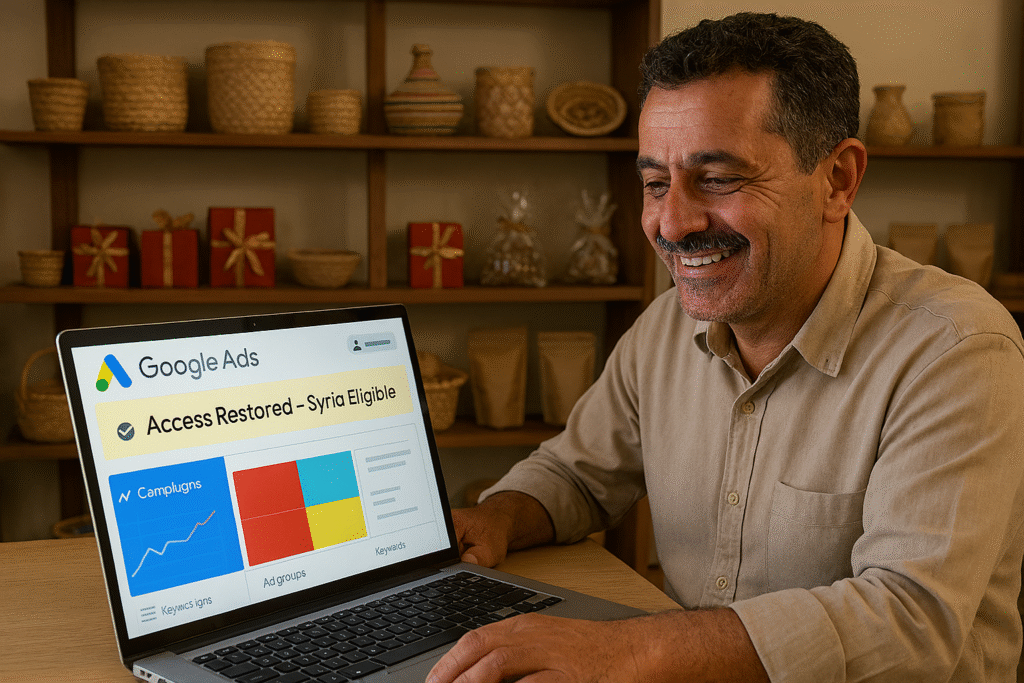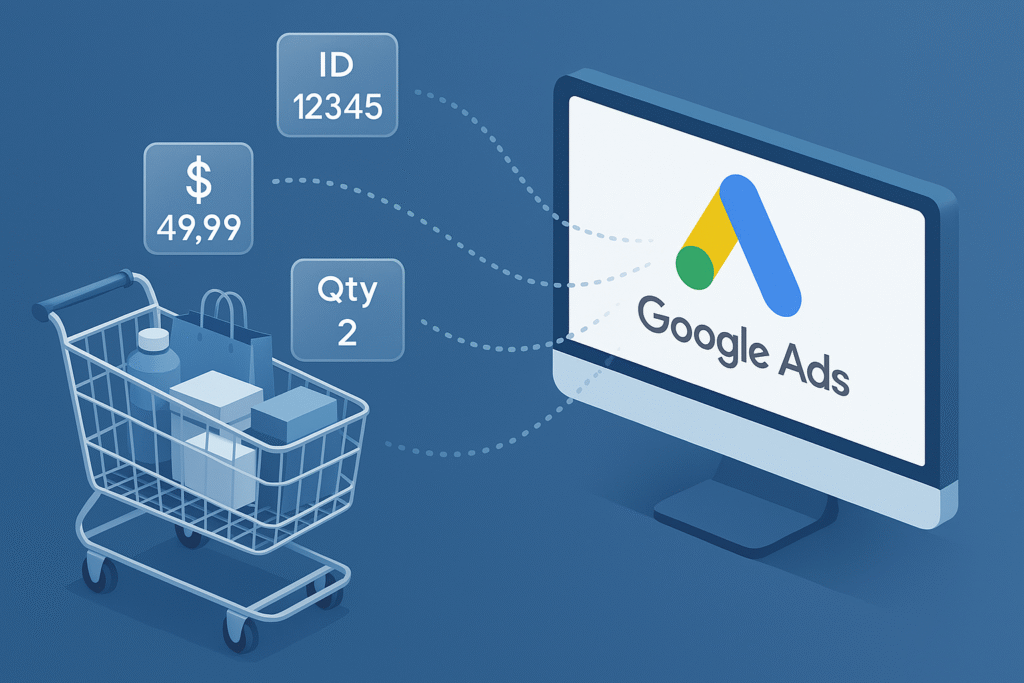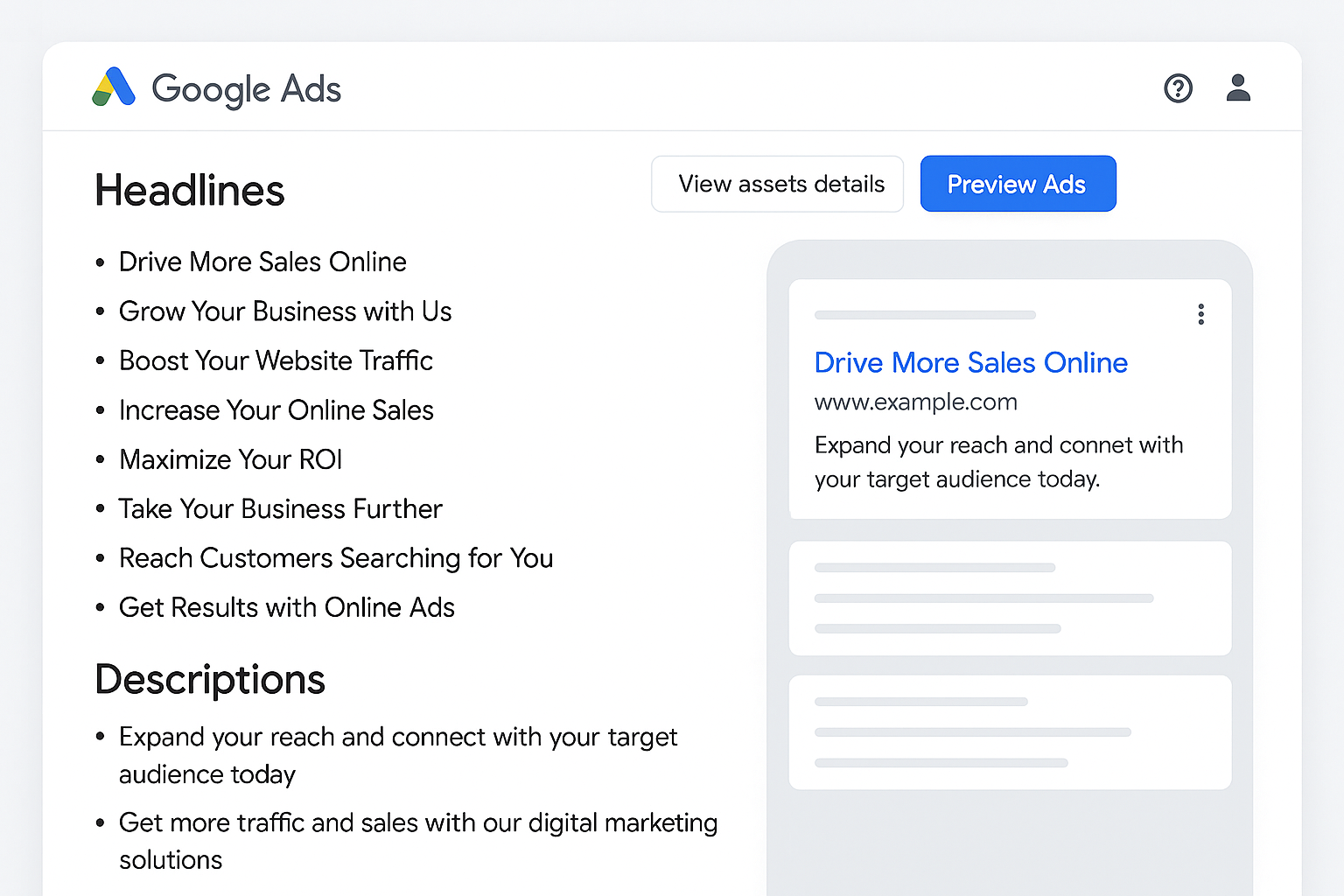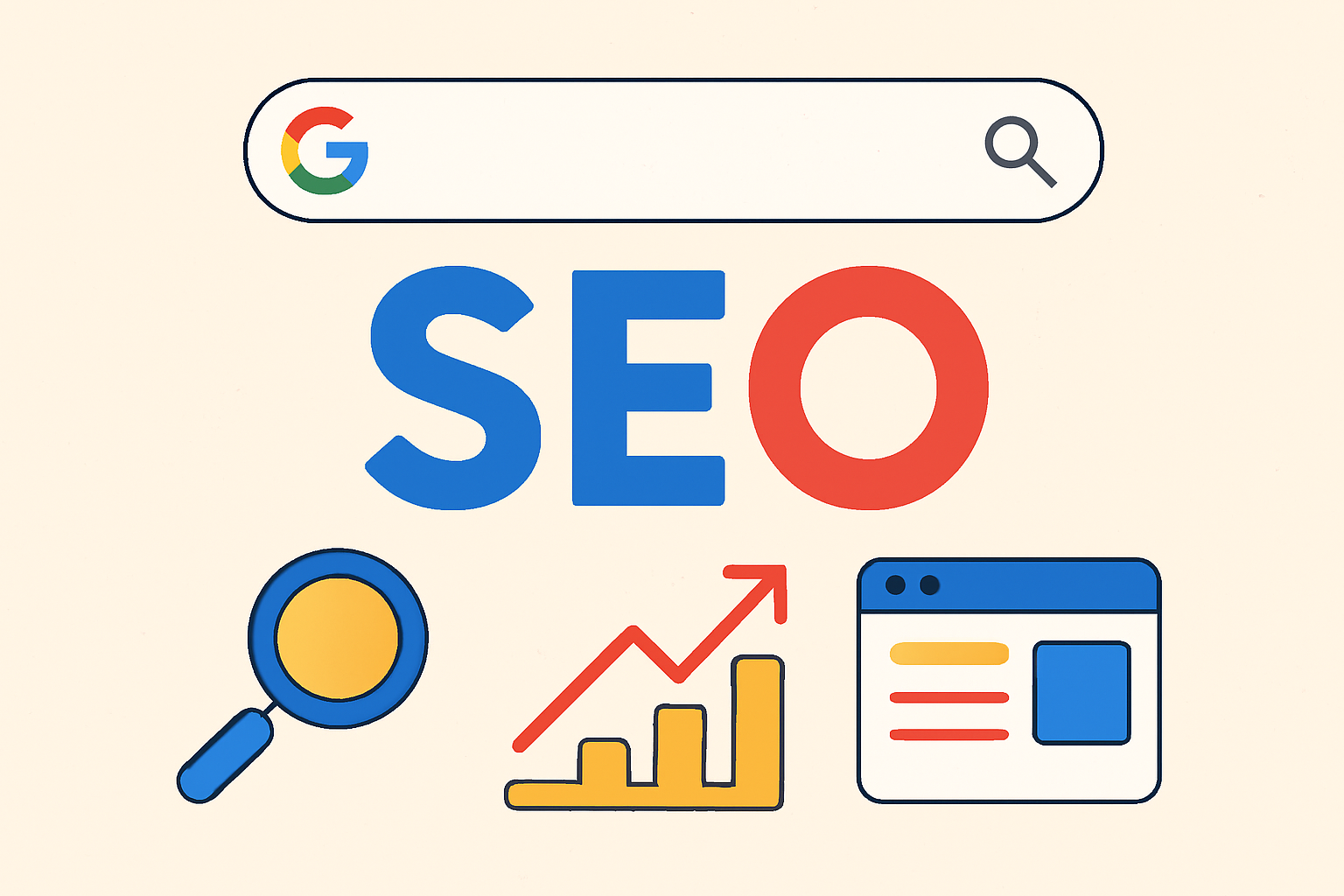Google has quietly announced a major policy(Syria Sanctions Lifted in Google Ads) change that could reshape how businesses and advertisers engage with Syria. Starting this month, the company has updated its Legal Requirements policy and its “Understanding Country Restrictions” page to reflect an important shift: Syria has been removed from the United States Office of Foreign Asset Control (OFAC) sanctions list.
For years, sanctions restricted international companies, including digital platforms, from doing business in Syria. That meant advertisers, marketers, and even small businesses were unable to use Google Ads in the region. Now, with this update, Syria is no longer included in those restrictions, creating new opportunities for digital marketing, online growth, and global connectivity. Adapting to changes in relationship ads? Read about Google Ads changes dating ad rules to stay compliant and effective.
What “Syria Sanctions Lifted in Google Ads” Policy Change Really Means
In simple terms, this update allows Google Ads users in Syria to finally access features that were previously unavailable. Advertisers from Syria can begin creating campaigns, targeting new markets, and participating in the same global advertising ecosystem that other countries enjoy.

For businesses outside Syria, this also means they can now advertise directly to Syrian audiences without running into blocked campaigns or restricted approvals. Considering Syria’s growing population of internet users, this shift could open the door for new e-commerce opportunities, educational outreach, and even humanitarian awareness campaigns.
It is important to note that while Syria is now cleared on Google’s platform, all campaigns will still be subject to Google’s standard advertising policies. Advertisers will need to follow the same rules around content, targeting, and compliance as they would in any other region.
The Official Reference is in English
Google clarified in its announcement that the English version of the policy remains the official reference for enforcement. This is a standard practice to avoid confusion that may arise from translations. For global businesses looking to expand into the Syrian market, this means they should rely on the English documentation when planning campaigns.
This might feel like a small detail, but it is an important one. Policies can sometimes be misinterpreted when translated, and advertisers risk unintentional violations. By keeping the English version as the authoritative source, Google ensures consistency in how these rules are applied worldwide. Looking to boost your profile? Discover what’s causing sluggish growth with Is your Instagram growth slowing down.
A Long Road to Change
The inclusion of Syria on the OFAC sanctions list had far-reaching consequences. For years, it limited international business activity and digital engagement with Syrian audiences. Syrian entrepreneurs, small businesses, and NGOs often found themselves unable to reach global markets through platforms like Google Ads.
Lifting Syria from these restrictions signals not only a change in U.S. policy but also a step toward reintegrating Syrian businesses into the global economy. While the move may not solve larger political or economic challenges overnight, it does create room for digital growth. Online advertising has long been a key tool for startups, small enterprises, and non-profits to gain visibility, and Syria’s inclusion in this space could inspire a wave of innovation.
What This Means for Advertisers
For marketers, the update raises an exciting question: how do you approach a newly opened market like Syria? Launching your app? Dive into iOS app campaigns for best practices to reach your audience.
Syria’s economy has faced challenges, but the country also has a large population eager to reconnect with the outside world. Internet penetration has grown significantly in recent years, especially through mobile access. Younger audiences, in particular, are active online and consume digital content at a high rate.
For businesses, this means the potential to introduce products, services, and ideas to a fresh audience. From e-commerce platforms selling household items to global education services offering online courses, the possibilities are wide open. Local Syrian businesses can also take advantage of Google Ads to showcase their services beyond borders, tapping into the international customer base that was once out of reach.
Challenges to Keep in Mind
While the removal of sanctions is a major breakthrough, advertisers should still approach this change carefully. Internet infrastructure in Syria remains under development, and access to advanced payment systems may not yet be widespread. That means ad targeting, conversion tracking, and return on investment might take time to fully optimize.
Additionally, advertisers should remain sensitive to the social and cultural context of the region. Marketing strategies that work in Western markets may not translate directly to Syrian audiences. Companies will need to invest time in understanding local preferences, language, and cultural values to create campaigns that resonate.
A Bigger Picture in Global Trade
This update is not just about digital ads. It is a reflection of how global trade and diplomacy can shift, impacting even the smallest business owners. By lifting restrictions, Google Ads has effectively re-opened a communication bridge between Syria and the rest of the world.
For international businesses, this signals an opportunity to rethink regional strategies. Markets once considered “off-limits” could gradually become part of larger global networks. And for Syrians, it represents a step toward inclusion in the digital economy.
What Happens Next
The next few months will be crucial to see how quickly advertisers adopt this change. Will businesses in Syria embrace Google Ads immediately, or will there be a slow transition as infrastructure catches up? Will international companies rush to target Syrian audiences, or will they wait and watch how the market develops?
Google has encouraged users to stay informed by checking its updated Legal Requirements policy and the Country Restrictions page. The company also highlighted the “Send Feedback” option, which allows developers and advertisers to share their experiences and suggest improvements. This feedback could help shape how Google continues to refine its global advertising framework.
Final Thoughts
The Syria Sanctions Lifted in Google Ads list and its reintroduction to the Google Ads ecosystem is more than just a technical update. It is a symbolic step forward in digital accessibility, offering new opportunities for businesses, nonprofits, and individuals on both sides of the border.
For Syrian entrepreneurs, it means finally being able to compete in the same digital marketplace as their global peers. For international businesses, it opens the possibility of reaching an audience that has long been out of reach. Stay on top of trends, see the newest Instagram Reels trends to keep your content fresh and engaging.
This is not the end of the journey, but it is an important milestone. As one policy changes, the path for new connections, growth, and opportunities widens. And for anyone working in digital marketing, it is a reminder of how quickly the global landscape can evolve.





